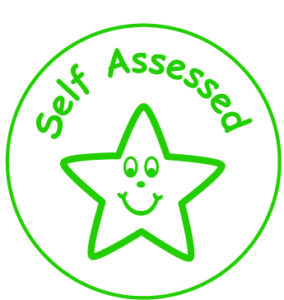
When it comes to growth individuals grow in so many aspects of their lives. A lot of the times this development comes from experiences they never expected to experience growth from. At the start of the semester I entered into an oddly shaped classroom with multiple boards and spinning chairs. This was where the semester long journey of my Writing in the Social Sciences class began.
The first day of class we spoke about a quote by Studs Terkel in our notebooks. As I look back to that free-write I can see that the way my mindset and the way that I was writing really shifted throughout the semester. When I look back at the very first free-write I believe that I was transitioning from a philosophical writing style into what is now more from the point of view of a social scientist. The quote stated, “The principle is that ordinary people have extraordinary thoughts — I’ve always believed that — and that ordinary people can speak poetically. (Studs Terkel)” A portion of my response during this free-write said, “Terkel’s quote speaks about ordinary people having extraordinary thoughts and ordinary people speaking poetically however if they have theses abilities to speak poetically and think extraordinarily then they are in fact not “ordinary.”” This style of writing was a bit more of questioning and making statements about topics but without evidence. Within the statement above I questioned something but answered it without concrete evidence, it was simply a statement. Another section of this free-write said, “Is it the “ordinary people” or is it decided by the already defined and placed on a higher pedestal “extraordinary people”?” When looking at this section I simply just questioned something and left it open to interpretation. As this class progressed I was encouraged to make concrete statements and support my statements with evidence that I had to actively gather. Even if I dreaded doing this it had to be done; I had to actively interview and observe environments that related to my topic so that I could analyze and draw my own conclusions.
This idea of actively engaging and gathering information helped me to be able to clearly form and express my viewpoint on the topic that I was writing about. At the beginning of March I had to conduct a class observation for a professor that I had taken previously. As I took notes to write what would later on be my “Class Observation Essay” I had to state the obvious of what was happening in the room but also analyze these actions in a way that fit into what I wanted to relate it to. For example, I noticed that, “Many students chose to sit with others that they physically identify with. There were two students that had glasses as well as two students who had similar hair and dress style that sat with each other. People tend to gravitate to people that look like them or that they know they can identify with. This made me think about myself in social situations.” The topic that I wanted to relate my observation to was the social subculture at The City College of New York and I was able to do this well. I was able to clearly state what I wanted to while analyzing and using physical observations to support the statement that I had made.
Once I was able to actively observe the environment I was able to choose a policy that I was passionate about and suggest ways to improve it. I spoke about this in my “Research Proposal” assignment. The second part of this assignment required me to find and analyze sources that supported and strengthened my thesis. As I looked for sources I considered the environment that I had observed and was interacting with on a daily basis to help narrow my search; especially because the CCNY database has so much information. A part of my research proposal said, “Almost every student that I have come in contact with in my short time at CCNY has a job that they are going to right after classes or on their days off. The article Understanding the Working College Student by Laura W. Perna says, “According to the National Center for Education Statistics, in 2007 nearly half (45 percent) of “traditional” undergraduates — that is students between the ages of sixteen and twenty-four attending college full time — worked while enrolled. About 80 percent of traditional-age undergraduates attending college part time worked while enrolled.” When you look at the schedules of these students it is very difficult to get good grades, be involved in multiple clubs on campus, and work a part time job. These students would be running on barely any sleep. The rising cost of tuition makes it nearly impossible for students to get involved on campus.” This was the outcome of one source in which I was able to exercise inclusive and accommodating skills to strengthen my sources and argument.
Through these three assignments the slow and steady transition within my writing style was very evident. I started off with a writing style that was not concrete and in a sense a bit theoretical. As I conducted the second assignment I strengthened my ability to observe and analyze in a whole new way. I actively observed and analyzed an environment instead of just reading a source and analyzing it. Once I had placed myself into the environment what I wanted to say became clearer. The fact that I was placed directly in the environment helped me to be able to plainly develop and express my point of view. Then, the third assignment I considered the environment that I had interacted with. This helped to strengthen my ability to search for sources within a policy that I was enthusiastic to help make a change in. My sources were so much richer once I was able to specify in a precise way what I needed. The stronger sources not only strengthened my argument but it also strengthened my ability to integrate my sources into my argument. The development of my analysis, evaluation, and integration of sources has positively developed through the duration of this class.



